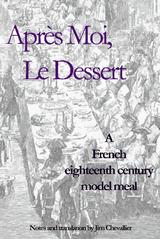BASTILLE: An American prisoner
Were there Americans in the Bastille? At the start of the century, Renneville listed Americans in a general catalogue of nationalities to be found in the Bastille. But he gave no specifics and is generally considered prone to exaggeration. A more certain reference appears in Charpentier's Bastille dévoilée (1789) with this entry from Bastille records: "Entry:11 August 1777 {Hodge, American Englishman] Exit: September 24, 1777" (La Bastille dévoilée: ou Recueil de pièces authentiques pour servir à son histoire - livraison 4 (16) ).
As it turns out, students of American Revolutionary history are more likely to already know about this case than students of France. In 1777, the French, still theoretically neutral, had already warned the American commissioners against sending out privateers from French ports when the Irish Captain Conygham, outfitted by Hodge, sailed from Dunkirk on July 16 of that year and captured some ships (presumably English), to the fury of the English and official displeasure of the French (though the fact that he had a largely French crew made some suspect Sartines' involvement.) Vergennes had Hodge, the outfitter of the ship, arrested. But in fact, according to Stacy Shiff, William Hodge may basically have been a fall guy for Benjamin Franklin and the other American commissioners: "Franklin and his colleagues had failed to grasp a fundamental tenet: One did not lie to the king of France." (Stacey Schiff, Great Improvisation: Franklin,France, and the Birth of America (96))
Hodge's arrest - complicated by his difficulty in understanding the French arresting officers' officialese - seems to have been a pro-forma sop to the English and he was soon released, though not without discussion. Charpentier's account of these events - written as the French began their own revolution - ends with these words:
When Mister Hodge, having left the Bastille, returned to his companions, and told them the story of the injustices committed against him by the French, the Americans could not have imagined that these same French would one day come to generously fight with them, for a liberty to which they attached so small a price. They could not have foreseen then that the spectacle of this same liberty would subsequently serve as a spur to these same Frenchmen, to recover rights which can sometimes be forgotten, but which are never lost.
(BD4-23)
(More about the intrigues around this case can be found in James Breck Perkins, France in the American Revolution (162)and John Bach McMaster, Benjamin Franklin as a Man of Letters (280).)





